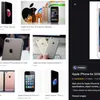Google rolls out Question Hub, in case it cannot answer your question
With Question Hub, users can let Google know when they could not find the content they were searching for, and it collects all these unanswered questions and provides them to publishers.
Google has become so synonymous with holding every answer one might need that the name of the company has become a verb in itself: need a pasta recipe? 'Google' it. But what if the popular search engine cannot generate the answers you are looking for? The answer to that is Question Hub.
Google Search organises terabytes of digital information to find the most relevant, useful results for anyone's search queries. But there could be cases where the content just isn't available.
1563944090374.jpg?fm=png&auto=format)
(Source: Shutterstock)
With Question Hub, users can let Google know when they could not find the content they were searching for, and it collects all these unanswered questions. For example, if you wanted to know, 'How many revolutions does Chandrayaan 2 make around the Earth?', Google sorts the question by topic (science), and provide them to the publishers so they can use these insights to create richer, better content for their audience.
In order to access Question Hub, the publishers will have to link their account to verified properties in the search console. For publishers without a search console account, other options are available. Once they create an account, they can explore topics relevant to their work by either searching for keywords or browsing categories. Once a topic is added, they can view unanswered questions that are asked by real people.
In its blog, Google said that it is launching the best version today after several months of testing with journalists and bloggers. Question Hub is now available in India, Indonesia, and Nigeria, in languages like English, Hindi, and Bahasa Indonesia.
In the future, the company plans to introduce Question Hub in other countries and languages.
Only yesterday, Google enhanced its image search to enable users to shop and purchase items on the webpage itself, in what may say is an attempt to lock horns with Amazon's ecommerce business.
(Edited by Evelyn Ratnakumar)


1563944090374.jpg?mode=crop&crop=faces&ar=2%3A1&format=auto&w=1920&q=75)
1563022305579.jpg?fm=png&auto=format&h=100&w=100&crop=entropy&fit=crop)





